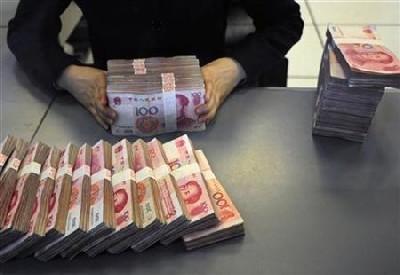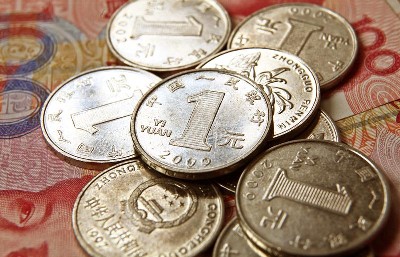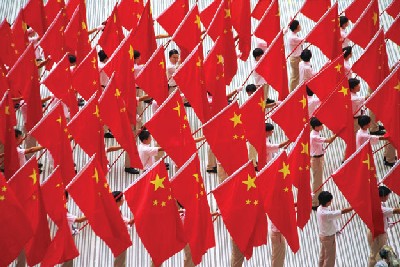Photographs: Reuters T N Ninan
The head of the European monetary authority stepped off the plane at Beijing airport, and was transported by a high-speed train faster than France's TGV, to the centre of Beijing.
There he hopped into a waiting limousine and was driven through traffic that was waved aside by motorcycle outriders, to Tiananmen Square, where he had been given an audience in the Great Hall of the People.
Mr Europe wondered how to make his a dignified mission. But in his heart he knew that his role was that of someone desperate for money to bankroll the European Financial Stability Fund.
And so, as he was ushered into one of the smaller audience chambers in the vast Soviet-style complex, he took his cue from how President Obama had bowed to a ramrod straight Hu Jintao while shaking hands, and bowed deeply. His host offered a stiff handshake.
...
The power of the Chinese economy
As Mr Europe explained his mission, his interlocutor listened in stony silence, then told him to come back after a week for the answer.
A week later, Mr Europe was told the money could be given, provided the terms were right. And what might those be, he asked. Well, he was told, it was going to be complicated, so he would have to listen carefully. First off, Europeans would have to start consuming opium in large quantities.
China would supply the opium, of course, because Chinese hongs would commission farmers to grow opium in Africa, which after all had vast tracks of uncultivated land.
Mr Europe was offended, but wasn't sure whether to show his true feelings or to try some diplomatic side-stepping. As he wrestled with conflicting thoughts, his interlocutor spoke again.
...
The power of the Chinese economy
That's the first condition; there is another. And what might that be? China would need to be given a large Greek island like Rhodes on a 99-year lease, which it would use for multiple purposes: as a trading enclave, as a base for Chinese gunboats in the Mediterranean, and as a rest and recreation centre for travelling Chinese businessmen.
This was too much for Mr Europe, who stood up, straightened his tie, and said he didn't need to hear any more. And, he added stiffly, he could do without Chinese money.
But wait, his interlocutor told him. Before you rush off I have something more to tell you. Mr Europe wasn't sure whether to stomp off with whatever dignity he could muster, or to stay and listen in the hope that the conversation would turn in more positive directions.
After all, he didn't want to return to Frankfurt empty-handed. His interlocutor waved him to sit down again and said, you must realise that a Chinese enclave in the Mediterranean would be a civilising influence on your continent, which we think needs to be made more cultured.
...
The power of the Chinese economy
We will set up meditation centres, to teach you how to bear your coming sufferings with equanimity, through an appreciation of Zen philosophy.
We will also teach your youngsters to have proper respect for their elders, through a proper understanding of the teachings of Confucius.
We will teach you some history, especially about gunboat diplomacy in the nineteenth century. And of course we would teach you Chinese economics.
Mr Europe bridled and seized on the last of these assertions. What economics can you teach us, he asked? We invented the science, and most of the great economists have come from Europe, including Karl Marx. His interlocutor merely smiled and said, we will teach you useful economics.
For instance, that it doesn't matter if a cat is Greek or Italian, so long as it catches mice.






article